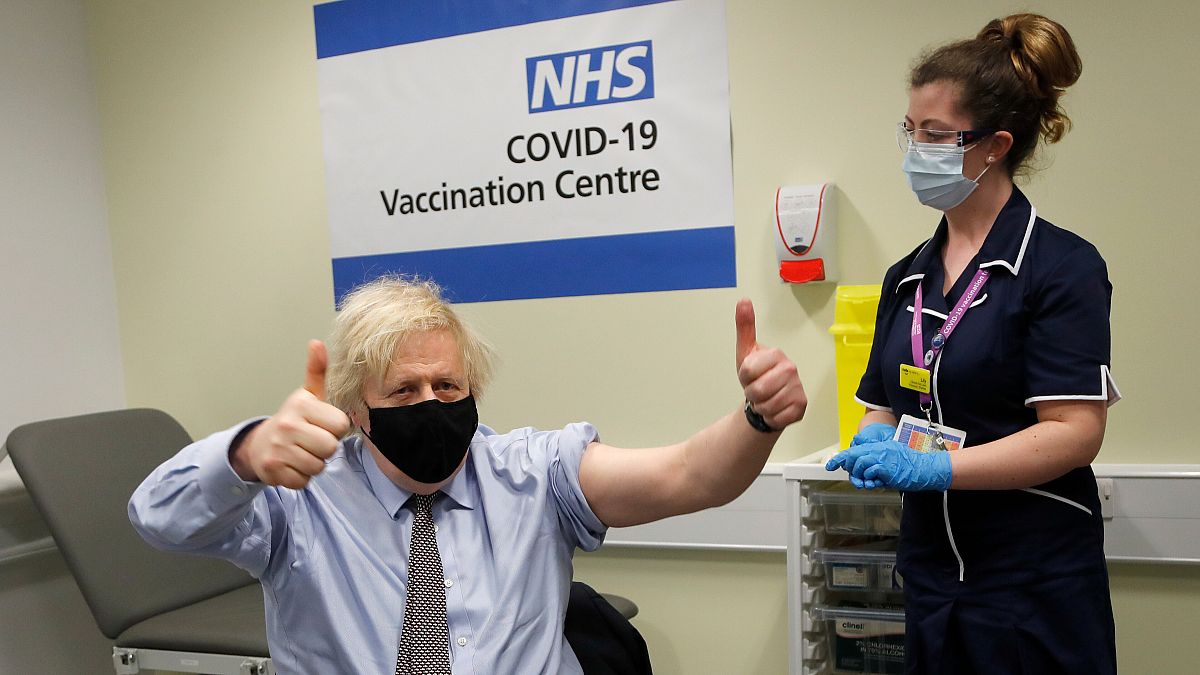The British government's struggle to respond coherently to the pandemic throughout 2020 is being laid bare by former Downing Street staff.
A public inquiry into the UK government's handling of the COVID-19 epidemic has heard that former prime minister Boris Johnson displayed an alarmingly complacent attitude toward the virus's high death toll among older people.
According to several senior aides and civil servants testifying to the ongoing investigation, Johnson was sceptical that the virus's threat to the elderly was worth the dramatic lockdown measures taken to stop its spread – even as the UK's National Health Service became overwhelmed with critically ill patients.
Other evidence presented includes testimony that Johnson asked advisers whether there was any truth to unsubstantiated claims that people could prevent themselves from contracting COVID by blowing hairdryers up their nostrils.
According to a set of diary entries submitted by Sir Patrick Vallance, at the time the government's chief scientific adviser, the then-prime minister repeatedly voiced his irritation with prioritising controlling the virus's spread.
In December 2020, just before the UK was abruptly locked down in advance of what turned out to be a devastating second wave of infections, Vallance wrote: "He says his party 'thinks the whole thing is pathetic and COVID is just Nature's way of dealing with old people – and I am not entirely sure I disagree with them. A lot of moderate people think it is a bit too much.' Wants to rely on polling."
Former Downing Street adviser Dominic Cummings, who served as a senior aide to Johnson through the early stages of the pandemic before being dismissed after a series of scandals, submitted a 115-page statement detailing what he remembers of the decision-making at the heart of government in the first months of 2020.
In that submission, he paints Johnson as highly suggestible and prone to "bouncing back and forth" based on "who he spoke to last". And in often explicit WhatsApp messages from March 2020, Cummings and Cain refer to the then-prime minister as a "trolley" and liken him to the mayor in the 1974 movie "Jaws" who insists on keeping his beaches open despite the presence of a great white shark.
Elsewhere in his evidence, Cummings recalls having to help persuade Johnson from going to see Queen Elizabeth II in person because of the risk of infecting her.
"I was desperate and said something like, 'if you've got COVID and you kill the Queen you're finished'," Cummings recalls, noting that a report of the discussion "appeared on the BBC in 2021 and was falsely denied" by Downing Street.
Testifying on Wednesday, senior civil servant Helen McNamara confirmed previous testimony that Johnson was insufficiently scientifically literate to grasp what he was being told by government advisers, requiring repeated explanations to help him understand crucial concepts such as infection rates and worst-case scenarios.
Johnson became infected with COVID-19 in April 2020, and developed symptoms serious enough that he was moved to intensive care. He ultimately recovered.
While his premiership outlasted the pandemic, his standing was irreparably damaged when it emerged that Downing Street staff – including him - had held parties and socialised in the building even as the public were being ordered to stay at home, even avoiding funerals and visits to loved ones in hospital.
Earlier this year, he was found to have misled parliament in his denials about the events of what became known as "Partygate". He chose to resign his seat.
